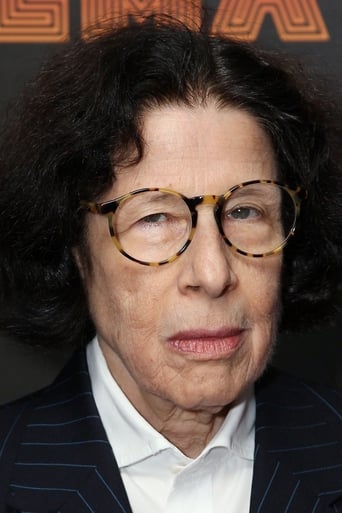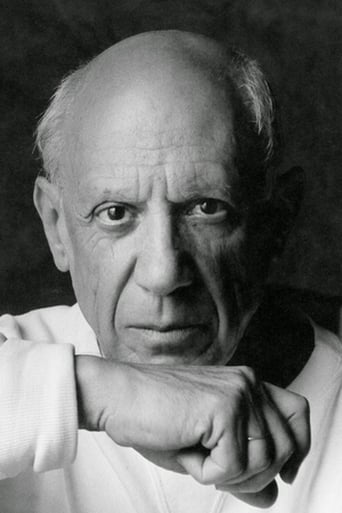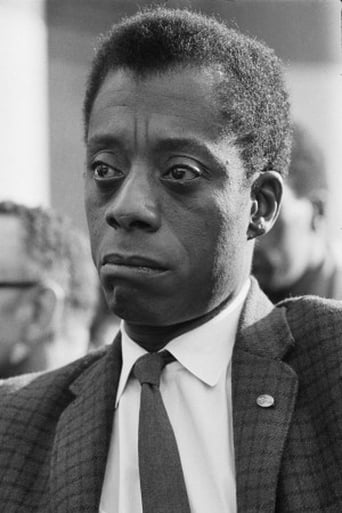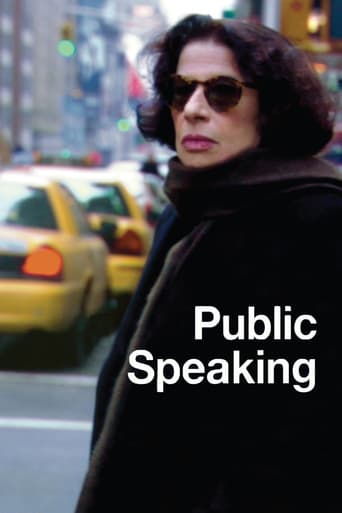
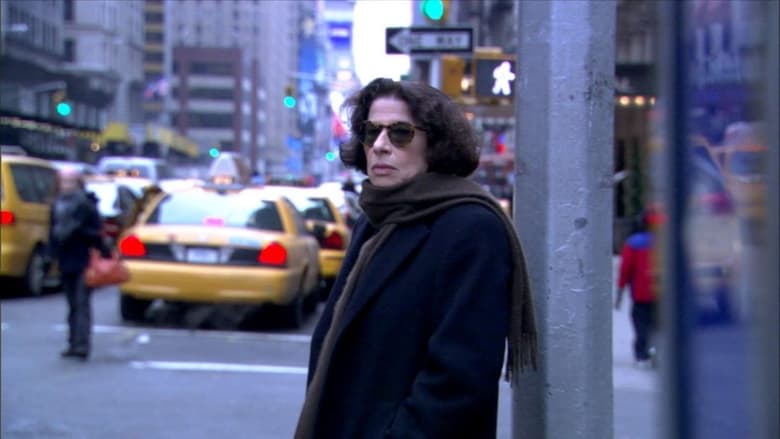
Public Speaking (2010)
A feature-length documentary starring Fran Lebowitz, a writer known for her unique take on modern life. The film weaves together extemporaneous monologues with archival footage and the effect is a portrait of Fran's worldview and experiences.
Watch Trailer
Cast


Reviews
With the arguable exception of the final shot of Gangs of New York, this cinematic portrait is the closest Scorsese has come to the modern New York, the New York he has seemed to leave behind in his work. He even uses references to his own classic NYC films. There is more than one moment in which Scorsese gently recreates Travis' smoke-filled night driving along apparently red light-style districts, immortalizing the subject of this documentary's pearl grey checker cab, complete with Bernard Herrmann's score, as she is herself a relic of Old NYC, much like Travis. When you're the director of Taxi Driver and you find out your focus of study is a New Yorker who drives an old checker cab, you can't help but be self-referential to portray the contrast between the New York before it became a tourist attraction and the New York of today.Unlike Travis, however, Scorsese finds this protagonist hilarious. And rightly so, because she is. Public Speaking centers on the antiquated calling of star intellectual Fran Lebowitz. What materializes, then again, is certainly a study of Lebowitz but also by expansion one of a city, and a scholarly culture, that has been severely thinned over the last thirty some years, apparently not for better. The grimy, vigorous, violent city that worked as Scorsese's inspiration is now dead, Lebowitz proposes, maybe accounting for why Scorsese finds little stimulation there of late. What lingers, as per this film's cantankerous figure of interest, is a realm of high-priced real estate and ridiculous smoking bans. Known more for her lecturing appearances than her slight literary productivity, Lebowitz is the ultimate chatterer, which makes her the ultimate interviewee.Shot chiefly from Lebowitz's favorite table at The Waverly Inn, Public Speaking is like a stand-up film starring a comic who keeps a safe distance from the stand-up characterization. This café, which is one of New York's bona fide old boys' clubs, is a steady prompt that Lebowitz has one foot in yesteryear and another resolutely in the here and now. Scorsese provides Lebowitz abundant occasion to both sardonically criticize the changes in contemporary politics and wax melancholy about the New York of her early life. Absorbing her discourse, one cultivates a true admiration for the talent of her speechifying. Each acerbic jab that she chucks is especially mirthful owing to the foul reality it accommodates. Lebowitz may be rather wedged in days gone by, but she remains there of her own volition, patently asserting that it's preferable to today's cultural wasteland.What makes Public Speaking most idiosyncratic in Scorsese's body of work is that little seems hallowed in this film, which makes it a bracing aide memoire of a media culture that some time ago was energized by provocative wit and intellect. Lebowitz's stance on religion, the toll of AIDS, gentrification and celebrity are each relatively scandalous in this current atmosphere of cut-and-dried idea sanitization, but the sense behind assertions like these is difficult to wave. Lebowitz at this stage has little concern with charming new fans, so sure is she of the pitiful shape of her audience. The surprise she pretends whenever a young person makes a perceptive remark says a lot. Scorsese, for his part, does little to water down or even interpret what she has to say, in spite of one's patience for a personality that's so plainly immutable. Knowing the director's roster of religiously imbued, guilt-ridden characters, one wonders how shocking Lebowitz's views are to him. Regardless of whether or not he felt that way, one also sees in that repertoire of protagonists a nonjudgmental, deferential teller of their stories. In this way, Public Speaking, for better or worse, does its subject justice and finds little else necessary.
A truly delightful and enlightening experience. Fran Lebowitz guides the viewer through her experience with a multitude of famous, and now deceased, great artists. Although Fran is 14 years my junior, she has grasped the essence of America. A scene with Pack Paar and Oscar Levant is gracefully mixed with sound bites from William Buckley, Jr and the fine playwrights of the last century. I felt a great deal of empathy for her when she discussed what turned out to be a big guffaw at an outdoor rally organized by Joe Papp. Arts oriented persons should feel perfectly at home listening to her monologue. Whether I watch the History Channel, PBS or HBO, seldom is there as entertaining a story as this. This is a solid recommendation for anyone who wants an in depth personal account of the arts.
Fran Lebowitz has been a part of the New York cultural scene since her arrival many years ago. She was a product of suburban New Jersey that never fitted in the small town atmosphere where she grew. Her passion for reading got her in enough trouble to be expelled from school. Her only alternative was to leave her surroundings and go to New York, a refuge for people like her, that found a haven among people that accepted her from the start. She confesses to have been taken by older gay friends that nurtured her in unexpected ways.Martin Scorsese, a fan of Ms. Lebowitz, sat with her in one of her favorite places, the Waverly Inn, where she expands on her way of looking at life and her eternal love for her adoptive city. When asked to explain about writer's block, she explains that she has suffered from the malady most of other famous authors have gone through.There are a lot of things she misses from the "good all days" when she came into the scene. The idea of previous eras being better becomes one of the main topics in the conversation. Finding people like James Baldwin when she first came to the city, showed her, in a way, the path she wanted to take. Even with only two books of essays to her name, Ms. Lebowitz is an authority in what is really happening in New York. Not being able to smoke in public is one of the things she misses the most. As far as she is concerned, the culture now has become boring.There is a section of the documentary that shows Ms. Lebowitz being interviewed by Toni Morrison, a friend, in front of an audience. One of the most hilarious situations she recounts is the almost international incident she provoked in Stockholm, when she accompanied Ms. Morrison to her acceptance of the Nobel prize. As a guest, she was relegated to the table set for the children of other prize winners, something that she thought it was uncalled for. Getting up to go to her agent's table was a faux pas on her part, not knowing the court's protocol.The conversation with Ms. Lebowitz was a good way to know something more personal of this witty writer.
Fran Leboits is an uncommon woman. The film is basically one long, casual interview.She's a fast-talking, witty, very opinionated, intriguing story-teller. Her humor reminds me of a less crass, less cynical version of George Carlin. She talks about being a woman, the biological inequality of women (which I rarely get to hear anywhere), homosexuality, the military, marriage, her cigarette addiction, "elites", American culture, democracy, a little bit of everything. Instead of ramming her Jewish background down your throat, she makes humorous, poignant observations. Definitely check it out, especially if you live in or around NYC.


